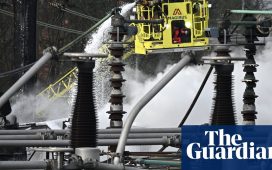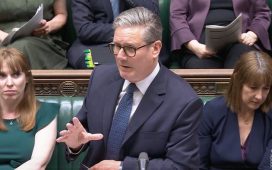The government has been urged to provide better, targeted support for energy bills this winter as the energy price cap rose by 10 per cent on Tuesday, bringing an average household bill to £1,717.
Around 7.7 million households are at risk of fuel stress, a report from the Resolution Foundation has found, where families need to spend more than 10 per cent of their income to heat their homes. This represents 37 per cent of all households, rising to 77 per cent for single-parent households.
To mitigate the impact of rising energy bills this winter, the authors urge the government to consider several measures which would also allow the government to stay within its spending limits.
The most promising, they write, is an expansion of the cold weather payments scheme, which gives eligible recipients £25 when local temperatures drop below freezing for a week or longer.
At present, only those claiming certain benefits, including pension credit, are eligible. Resolution says this could be expanded to all households in receipt of any means-tested benefit, the state pension, child benefit, or disability benefit – raising the number of eligible families from 4 million 2023/24 to 12 million.

The report also recommends the temperature point at which the payment is triggered be raised. They point to the finding that the 2021/22 cold weather payment expenditure was £150 million, while in 2022/23, it was close to zero.
Addressing Labour’s much-criticised decision to cut the winter fuel payment for millions of pensioners, the think tank does not explicitly recommend reinstating the payment. The report authors write that pensioners are “on average” far better off than in the past and that non-pensioners – who are more likely to be living in fuel stress – are “missing from the debate.”
Alex Clegg, economist at the Resolution Foundation, said: “Couples with children are more than twice as likely to experience fuel stress as pensioner households, so any new support should not be limited to pensioners. Reforming and expanding Cold Weather Payments offers a viable quick-fix solution to help keep households warm when the mercury drops this winter.
“Looking beyond this winter, the Government should prioritise developing a social tariff and investing in energy efficiency for our homes. This would help to ensure that vulnerable families are insulated from future energy shocks, whatever their age or circumstances.”
More recommendations they make include reducing bills by reforming energy policy, cutting costs for families on pre-payment meters, and expanding the warm home discount scheme.

A government spokesperson said: “We are pushing ahead with our mission for clean, homegrown power by 2030 to cut our reliance on international oil and gas markets.
“We will do everything possible to support vulnerable families this winter – including with the £150 Warm Home Discount expected to support three million eligible households, while around 1.3 million households in England and Wales will continue to receive up to £300 in Winter Fuel Payments.
“Alongside this, our plans for the biggest potential boost to home energy standards are set to lift one million households out of fuel poverty.”
For the latest support and advice as energy bills rise and temperatures drop, take a look at The Independent’s regularly updated guide.











